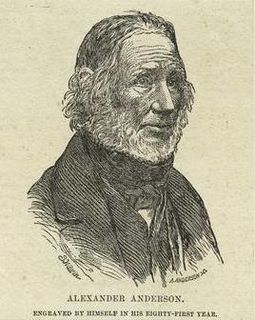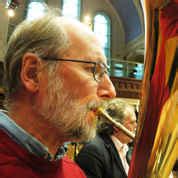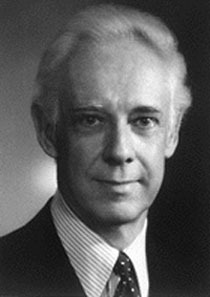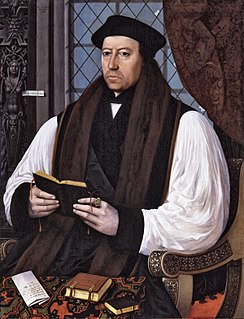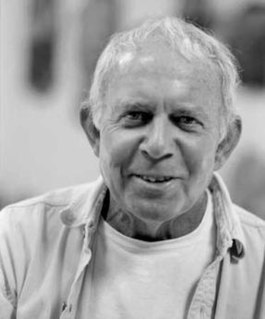A Quote by Raymond B. Fosdick
The search for truth is, as it always has been, the noblest expression of the human spirit. Man's insatiable desire for knowledge about himself, about his environment and the forces by which he is surrounded, gives life its meaning and purpose, and clothes it with final dignity.... And yet we know, deep in our hearts, that knowledge is not enough.... Unless we can anchor our knowledge to moral purposes, the ultimate result will be dust and ashes- dust and ashes that will bury the hopes and monuments of men beyond recovery.
Quote Topics
About
Always
Anchor
Ashes
Been
Beyond
Bury
Clothes
Deep
Desire
Desire For Knowledge
Dignity
Dust
Enough
Environment
Expression
Final
Forces
Gives
Hearts
Himself
His
Hopes
Human
Human Spirit
Insatiable
Know
Knowledge
Life
Man
Meaning
Men
Monuments
Moral
Noblest
Our
Purpose
Purposes
Recovery
Result
Search
Search For Truth
Spirit
Surrounded
Truth
Truth Is
Ultimate
Unless
Which
Will
Related Quotes
The highest knowledge is to know that we are surrounded by mystery. Neither knowledge nor hope for the future can be the pivot of our life or determine its direction. It is intended to be solely determined by our allowing ourselves to be gripped by the ethical God, who reveals Himself in us, and by our yielding our will to His.
Shadow and dust shall be reclaimed, earth sealing the tomb from which you came. Dust to dust, ashes to ashes, warrior return, breathe your last. Air, earth, fire, water, hear my voice, obey my order, thrice around your grave do bound, evil sink into the ground. I now invoke the law of three, this is my will, so mote it be.
If one does not make human knowledge wholly dependent upon the original self-knowledge and consequent revelation of God to man, then man will have to seek knowledge within himself as the final reference point. Then he will have to seek an exhaustive understanding of reality. He will have to hold that if he cannot attain to such an exhaustive understanding of reality he has no true knowledge of anything at all. Either man must then know everything or he knows nothing. This is the dilemma that confronts every form of non-Christian epistemology
Our deepest calling is not to grow in our knowledge of God. It is to make disciples. Our knowledge will grow -- the Holy Spirit, Jesus promised, will guide us into all truth. But that's not our calling, it is His. Our calling is to prepare the world for Christ's return. The world is not ready yet. And so, we go about introducing a dying world to the Savior of Life. Anything we do toward our own growth must be toward that end.
We find that one of the most rewarding features of being scientists these days ... is the common bond which the search for truth provides to scholars of many tongues and many heritages. In the long run, that spirit will inevitably have a constructive effect on the benefits which man can derive from knowledge of himself and his environment.
Time is a lot of the things people say that God is. There's always preexisting, and having no end. There's the notion of being all powerful-because nothing can stand against time, can it? Not mountains, not armies. And time is, of course, all-healing. Give anything enough time, and everything is taken care of: all pain encompassed, all hardship erased, all loss subsumed. Ashes to ashes, dust to dust. Remember, man, that thou art dust; and unto dust thou shalt return. And if time is anything akin to God, I suppose that memory must be the devil.
We have heard of a Society for the Diffusion of Useful Knowledge. It is said that knowledge is power, and the like. Methinks there is equal need of a Society for the Diffusion of Useful Ignorance, what we will call Beautiful Knowledge, a knowledge useful in a higher sense: for what is most of our boasted so-called knowledge but a conceit that we know something, which robs us of the advantage of our actual ignorance? What we call knowledge is often our positive ignorance; ignorance our negative knowledge.
Clay can be a metaphor for many things. I made it a metaphor for flesh and earth, and these are two kinds of generic givens of life, if you look at it poetically, biblically, the idea of the life of beings, of man, being transitory, the earth abides-ashes to ashes, dust to dust-man returns to earth, grows out of earth like a flower, wilts, goes back to the earth... We are frail, transitory creatures with aspirations of immortality, conscious of our inevitable death, and we have to deal with it somehow.
Immediate knowledge tells us only that God is, not what he is. But if God is not an empty Being beyond the stars, he must be present in the communion of human spirits, and, in his relation to these, he is the One Spirit who pervades reality and thought. Hence there can be no final separation between our immediate consciousness of him and our mediated knowledge of reality.
Loving a holy God is beyond our moral power. The only kind of God we can love by our sinful nature is an unholy god, an idol made by our own hands. Unless we are born of the Spirit of God, unless God sheds His holy love in our hearts, unless He stoops in His grace to change our hearts, we will not love Him... To love a holy God requires grace, grace strong enough to pierce our hardened hearts and awaken our moribund souls.





